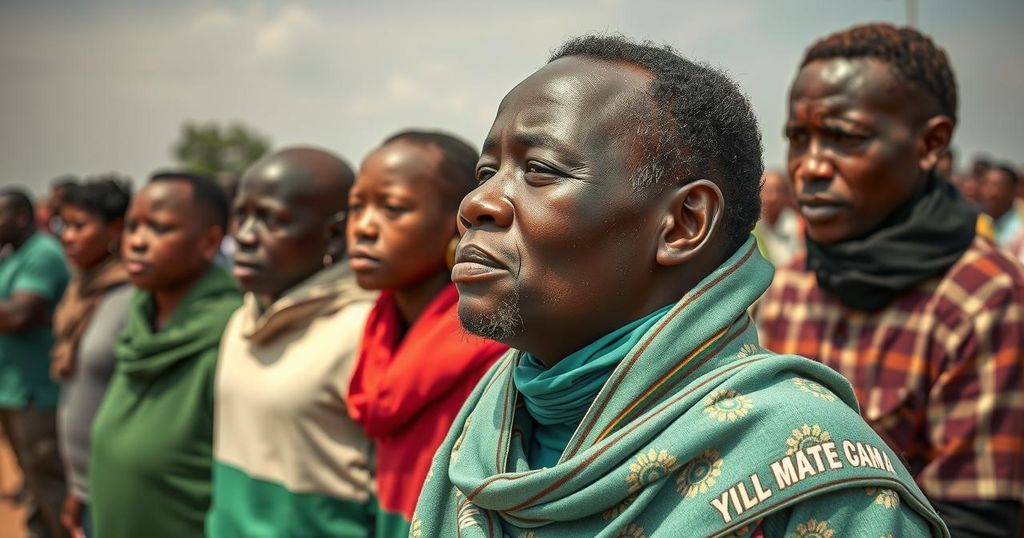Global news
ABDEL FATTAH AL - BURHAN, AFRICA, AL, AL - MASRY AL - YOUM, ASIA, CONFLICT RESOLUTION, DIPLOMACY, DONALD TRUMP, EGYPT, EUROPE, EUROPE/ASIA, HAM, HEM, HEMEDTI, INTERNATIONAL RELATIONS, IRAN, MASRY AL - YOUM, NILE VALLEY, RAPID SUPPORT FORCES, REFUGEE CRISIS, RUSSIA, SANCTIONS, SOUTH, SUDAN, UKRAINE, UNITED NATIONS
Leila Ramsay
0 Comments
The Obscured Crises of Sudan: A Call for Global Attention
Sudan’s crisis has faded from international attention, with the media, UN, and humanitarian organizations neglecting the ongoing humanitarian and military crises. The country faces economic fragmentation, highlighted by the coexistence of two currencies under differing controls. This situation echoes historical precedents of division, raising concerns about the potential for secession while the global response remains inadequate.
The crisis presently afflicting Sudan appears to have receded from the consciousness of the international community. With limited media coverage, insufficient attention from the United Nations, and neglect from humanitarian organizations, Sudan’s suffering has become increasingly obscure. Vital details regarding military movements, factional control, and the humanitarian situation are shrouded in uncertainty. This lack of global focus on Sudan starkly contrasts with the ongoing crises in Syria, Palestine, and the war in Ukraine, all of which dominate international discourse.
Sudan, strategically located adjacent to Egypt and vital to the Nile Valley, is currently experiencing a fragmentation of its currency system. Governed by the Sudanese army under Abdel Fattah al-Burhan, certain regions utilize one currency, while areas controlled by the Rapid Support Forces, led by Hamdan Dagalo (Hemedti), depend on another. The Sudanese government’s partial currency exchange initiative has left regions controlled by the Rapid Support Forces without banks, resulting in significant financial distress and distinguishing the population into “old currency states” and “new currency states.”
This emerging dichotomy bears an unsettling resemblance to the divisions experienced prior to South Sudan’s secession when the idea of “one country, two systems” eventually contributed to the creation of two independent nations. The possibility of a similar scenario unfolding in Sudan raises concerns about potential division and secession, yet international inaction prevails as the humanitarian plight remains unaddressed. The hope lies not in earthly interventions but rather in the yearning for divine compassion to assist the Sudanese people, as human empathy seems markedly lacking.
In the context of a rapidly deteriorating situation in Sudan, the international community has largely forgotten about the country, which has been engulfed in crisis for an extended period. This neglect extends from mainstream media to significant international bodies, leaving the citizens without vital assistance and drawing attention away from critical geopolitical dynamics in the region. The current economic instability, exemplified by the bifurcation of currency systems, signals not only a financial crisis but potentially foreshadows greater societal fractures. Historical parallels with the division of South Sudan bring into sharper relief the dire consequences of continued inattention.
In summary, the crisis in Sudan demands urgent international focus and intervention, given the deteriorating humanitarian situation and the emergence of significant economic disparities stemming from a fragmented currency system. The unresolved issues of factional control and the potential for further division present substantial challenges that require concerted efforts and empathy from the global community. A renewed commitment from international organizations is essential to alleviate the overshadowed plight of Sudanese citizens and restore their hopes for stability.
Original Source: themedialine.org




Post Comment